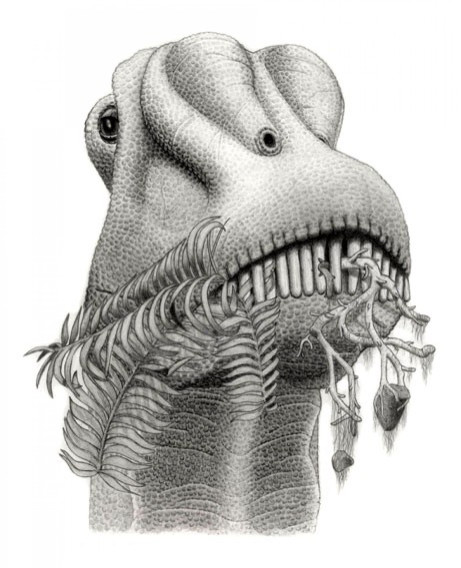Dinosaur Farts Could Have Helped Warm Prehistoric Earth

Dinosaur farts and burps could have had a significant effect on prehistoric climate change, according to a new study from a trio of British scientists.
In a paper that appeared in the journal Current Biology on Monday, the researchers estimated how much methane the global population of sauropods -- a group of plant-eating dinosaurs that includes the iconic Apatosaurus (colloquially known as Brontosaurus) -- would have emitted.
Methane one of the most powerful greenhouse gases in the atmosphere - it can trap more than 20 times as much heat as carbon dioxide. Cows, sheep and other livestock are responsible for about 20% of modern global methane emissions, and it stands to reason that huge plant-eaters like sauropods may have contributed their fair share of methane in their era.
The researchers estimated that the global population of sauropods throughout the Mezozoic era (250 to 65 million years ago) was putting out around 520 million tons of methane per year - roughly equal to all natural and manmade sources of methane today, according to Liverpool Johne Moores University's David Wilkinson, one of the authors.
These are huge herbivores - they're going to have an effect, Wilkinson said in a telephone interview.
Of course, there are several assumptions and estimations packed into the authors' calculations - we don't know how many total sauropods were around during that time period or exactly how their digestive tracts worked.
While there's no direct evidence showing that sauropods emitted methane, it is likely that the digestive tracts of large plant-eating dinosaurs, like those of cows or elephants, would play host to microbes that helped break down plant matter and produced methane as a byproduct, Wilkinson said.
Pretty much everyone that works on sauropods assumes they used microbes in their guts, Wilkinson said in a telephone interview.
The methane produced by the microbes would have exited the dinosaurs by various means - through breathing, burps and yes, out the dinosaurs' rear ends.
Willkinson said he and his colleagues tried to err on the conservative side in making their calculations. But this cautiousness means the study may even underestimate the impact of sauropods on prehistoric global warming.
Even if sauropods emitted half as much methane as predicted, their emissions alone would still contribute significantly to the amount of methane in the atmosphere, the authors wrote.
Sauropods remain a potentially important source of methane that hasn't been considered before, Wilkinson said.
© Copyright IBTimes 2024. All rights reserved.





















